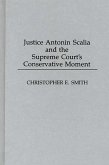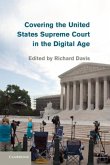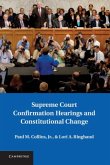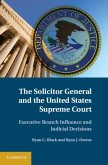A History of Securities Law and the Supreme Court explores how the Supreme Court has made (and remade) securities law. It covers the history of the federal securities laws from their inception during the Great Depression, relying on the justices' conference notes, internal memoranda, and correspondence to shed light on how they came to their decisions and drafted their opinions. That history can be divided into five periods that parallel and illustrate key trends of the Court's jurisprudence more generally. The first saw the administration of Franklin Delano Roosevelt--aided by his filling eight seats on the Court-triumph in its efforts to enact the securities laws and establish their constitutional legitimacy. This brought an end to the Court's long-standing hostility to the regulation of business. The arrival of Roosevelt's justices, all committed to social control of finance, ushered in an era of deference to the SEC's expertise that lasted through the 1940s and 1950s. The 1960s brought an era of judicial activism-and further expansion--by the Warren Court, with purpose taking precedence over text in statutory interpretation. The arrival of Lewis F. Powell, Jr. in 1972 brought a sharp reversal. Powell's leadership of the Court in securities law produced a counter-revolution in the field and an end to the SEC's long winning streak at the Court. Powell's retirement in 1987 marked the beginning of the final period of this study. In the absence of ideological consensus or strong leadership, the Court's securities jurisprudence meandered, taking a random walk between expansive and restrictive decisions.
Dieser Download kann aus rechtlichen Gründen nur mit Rechnungsadresse in A, B, BG, CY, CZ, D, DK, EW, E, FIN, F, GR, HR, H, IRL, I, LT, L, LR, M, NL, PL, P, R, S, SLO, SK ausgeliefert werden.









